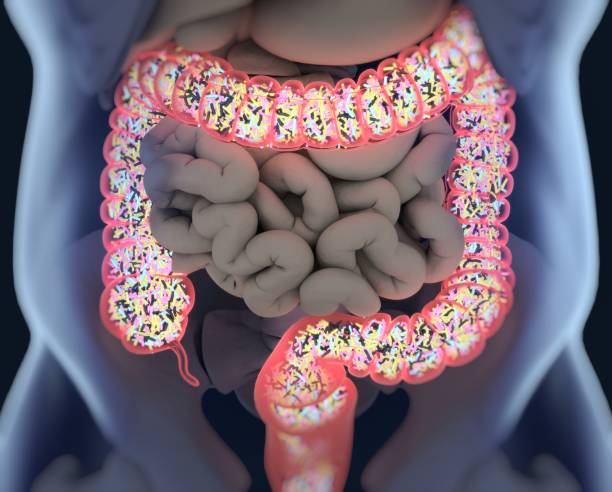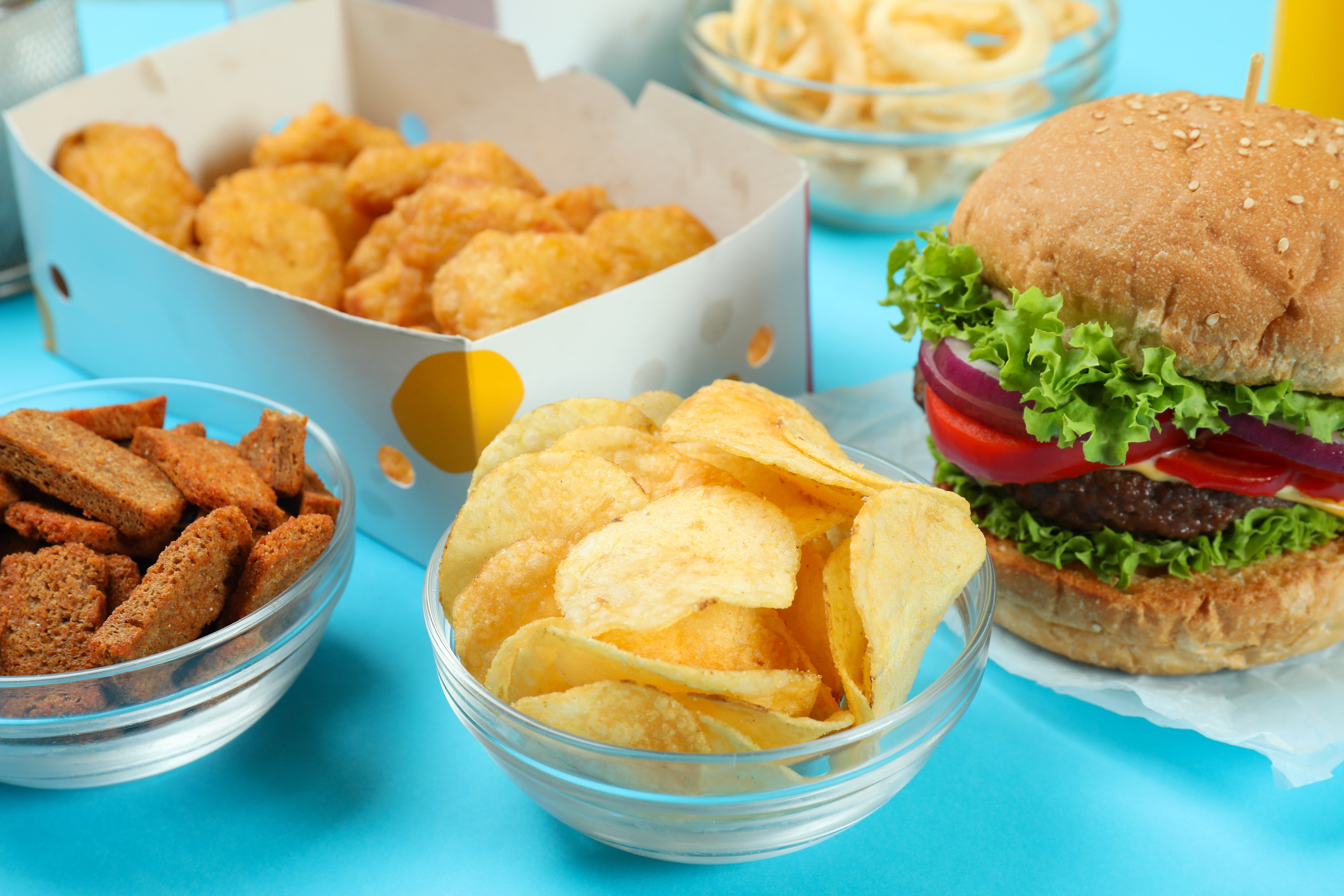What to eat for better mental and physical health? According to a neuropsychologist, 'the secret is in the microbiota'

Neuropsychologist Daniela Graiño arrived in Colombia from Argentina in 2002. She trained as a neuropsychologist at Favaloro University (Argentina) and the Grancolombiano Polytechnic, where she first heard about microbiota. This concept, which she initially learned about due to its relationship with children's behavior, later became the focus of her personal research and professional interest.
In addition to training in psychology and neuropsychology, she studied psychonutrition and nutrition at the Universidad de los Andes, which led her to integrate scientific and practical knowledge about the impact food has on the health of the body and mind. Since April of this year, she has been sharing this knowledge through her @MicrobioMood project on Instagram, an account designed to make this information accessible with recipes, scientific data, and useful tips.
Graiño asserts that the secret to a healthy life lies in the gut microbiota, due to its ability to influence the immune system, digestion, sleep quality, mood, and even emotions. That's why he insists that what we eat not only nourishes the body, but also impacts the soul.
Why does what we eat have such an impact on how we feel? Well, first, it's worth remembering what the microbiota is. It's the collection of millions of bacteria. We live in harmony with them. There's microbiota in the mouth, the vagina... In my case, I focus on the most important one, the one everyone talks about: the gut microbiota.
Why? Because it's in contact with the brain. There's something called the gut-brain axis, and it's the way they connect. They're totally connected. Both the microbiota—known as the "second brain"—and the enteric system have millions of neurons, even more than those in the spinal cord. They both share a language, which is that of neurons, and have a direct connection: the vagus nerve.

Gut microbiota is key to mental health, according to Graiño. Photo: iStock
So, we're talking about an axis where everything that happens in the gut has a huge impact on the brain. Eighty percent of impulses go from the bottom up. This can be easily explained: you receive bad news and, immediately, you feel something in your stomach. Similarly, if you're poorly nourished, if you have dysbiosis, the entire system begins to fail. Because your mood, your immune system, your digestion… all depend on the state of your microbiota. They're inevitably interconnected.
How should we eat so that what we ingest nourishes not only the body, but also the mind? It's very simple. What I'm trying to do is return to the origins, to our grandmothers, to how they cooked. Well, I'm talking about how my grandmothers cooked, about Argentine cooking. Imagine going back to that food where ultra-processed foods didn't exist. The first thing I say we have to eliminate is everything that's ultra-processed, everything that went through so many processes to become what it is.
We always have to remember that if a label lists a bunch of ingredients we don't have in our pantry, don't buy it. Because those are chemicals, or things that may not be beneficial to our bodies.
What I propose is to eliminate ultra-processed foods and eat as simply as possible: fruits, vegetables, legumes. It's very simple; nothing special is needed. My market is the market square. I buy everything I eat there: nuts, fruits, vegetables.

According to Graiño, ultra-processed foods have a negative impact on the microbiota. Photo: iStock
I also suggest moving away from sugar. Sugar… I can't say it's poison, but it's not good for you. There are substitutes, but the ideal would be to eliminate it completely. The same goes for refined flours: you have to switch to whole-grain flour, which provides the most fiber. The microbiota feeds on the same things we do; it needs fiber. Fifty percent of our diet should be fiber.
And the microbiota isn't just about what you eat. It's also about drinking water and exercising. The microbiota improves if you walk and move around. Plus, you have to provide variety. Each thing we eat feeds a different bacteria. If we provide variety, colors, and different foods, we'll have a robust and powerful microbiota.
And what impact does that have on mental health? Huge. Just think, 80% of serotonin is produced in the gut, in a healthy microbiota. Each neurotransmitter has its function. Serotonin is linked to calmness and well-being. Dopamine is linked to pleasure and motivation. If you have a poor microbiota, which doesn't produce serotonin, you'll suffer from anxiety, nervousness, and even a lack of empathy.
I strongly associate serotonin with empathy. When I feel good, I can see others differently. I can approach them differently. It's exciting.

Serotonin is linked to calmness and well-being. Photo: iStock
And it's not just that the neurotransmitters produced in the microbiota travel to the brain, but rather the vagus nerve transmits signals that everything is okay. There is also production in the brain, but it's about achieving harmony between the two.
I've been practicing it for years. I've never talked about it on Instagram, but I have personal examples. For example, when my husband had a highly contagious skin infection, the doctor told me it was inevitable I'd get infected... and I didn't. My immune system worked differently. I'm not saying I can't get sick, of course I can, but since I've been taking care of my microbiota, I rarely get the flu.
What would you recommend to someone who wants to start taking care of their microbiota? First, understand what the microbiota is, understand its function. It's not just digestion. Seventy to eighty percent of the immune system is located in the gut. Understanding that is very important.
Then, there are many people with anxiety and mental health issues who would greatly benefit from changing their diet. I'd like to make caring for our microbiota as natural as brushing our teeth. I'm convinced of that.

A healthy gut microbiota also translates into good digestion. Photo: iStock
And also start with the basics: stay away from ultra-processed foods, take care of your sleep, and exercise. It doesn't matter if you don't go to the gym; walk, get some sun exposure. At MicrobioMood, I give you tips for that too.
But above all: educate yourself. Know what ultra-processed foods are, know that what you eat can be good or bad for you, know how to read labels. These products are designed to be addictive, but they are terribly harmful to our bodies.
Environment and Health Journalist
eltiempo

%3Aformat(jpg)%3Aquality(99)%3Awatermark(f.elconfidencial.com%2Ffile%2Fa73%2Ff85%2Fd17%2Fa73f85d17f0b2300eddff0d114d4ab10.png%2C0%2C275%2C1)%2Ff.elconfidencial.com%2Foriginal%2F118%2Ffff%2F9ce%2F118fff9ce5332b99118e7fbdacce4f96.jpg&w=3840&q=100)

%3Aformat(jpg)%3Aquality(99)%3Awatermark(f.elconfidencial.com%2Ffile%2Fbae%2Feea%2Ffde%2Fbaeeeafde1b3229287b0c008f7602058.png%2C0%2C275%2C1)%2Ff.elconfidencial.com%2Foriginal%2Ff04%2Fe17%2F972%2Ff04e17972abfe8f407fb05532250222f.jpg&w=3840&q=100)
%3Aformat(jpg)%3Aquality(99)%3Awatermark(f.elconfidencial.com%2Ffile%2Fbae%2Feea%2Ffde%2Fbaeeeafde1b3229287b0c008f7602058.png%2C0%2C275%2C1)%2Ff.elconfidencial.com%2Foriginal%2Faa8%2F56d%2Ff1a%2Faa856df1a5ce3fc529f921ba6d4ef66b.jpg&w=3840&q=100)
%3Aformat(jpg)%3Aquality(99)%3Awatermark(f.elconfidencial.com%2Ffile%2Fa73%2Ff85%2Fd17%2Fa73f85d17f0b2300eddff0d114d4ab10.png%2C0%2C275%2C1)%2Ff.elconfidencial.com%2Foriginal%2F416%2F92d%2Fbd3%2F41692dbd33af62eb735d8c9cb3631f4b.jpg&w=3840&q=100)